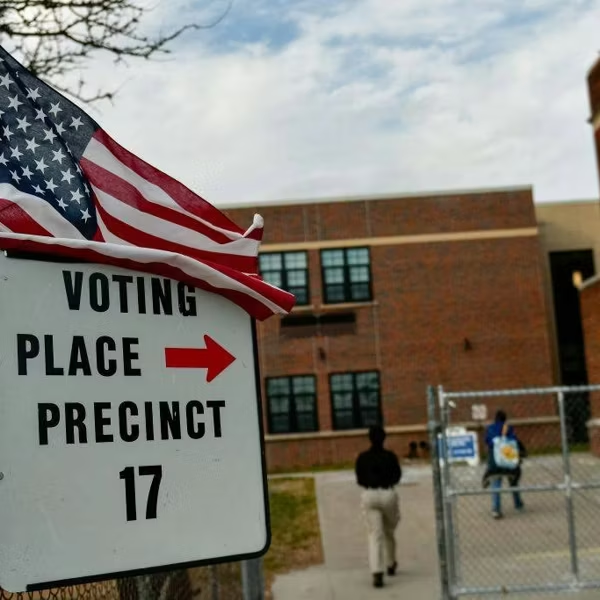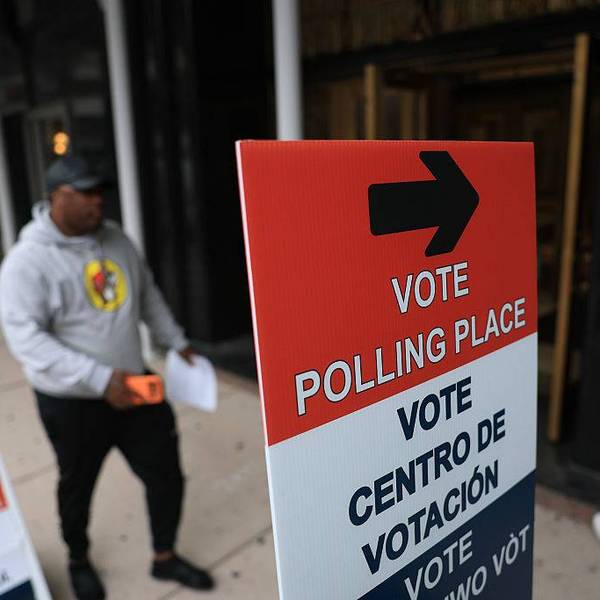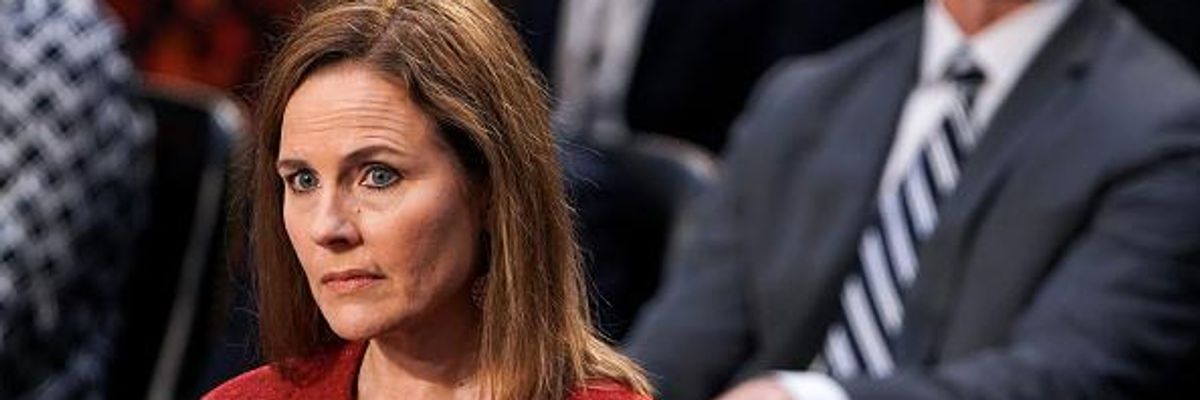When Judge Amy Coney Barrett was asked Tuesday during her second day of confirmation hearings if it would be constitutional for the president of the United States to "unilaterally delay an election," the right-wing Supreme Court nominee refused to answer the question except in vague terms, saying that judges should "approach cases with an open mind."
"Holy smokes. We are in danger," said Genevieve Guenther, founder and director of End Climate Silence, in response to Barrett's apparent openness to allowing President Donald Trump--who recently nominated her to replace the late Justice Ruth Bader Ginsburg on the U.S. Supreme Court--to unilaterally postpone the 2020 election.
"This shouldn't be a hard question," tweeted Demand Justice, a progressive organization opposed to the Republican Party's anti-democratic court-packing efforts. "The fact that she would not answer it is deeply troubling."
Rep. Mark Pocan (D-Wis.) highlighted the hypocrisy of Barrett's equivocation, saying that anyone with a so-called "originalist" interpretation of the U.S. Constitution should have been able to answer with a definitive "No."
In addition to Barrett's ambiguous and legally dubious response to Sen. Dianne Feinstein's (D-Calif.) question about the constitutionality of a unilateral presidential postponement of Election Day, Trump's pro-corporate Supreme Court nominee also refused to commit to recusing herself from any cases arising from election disputes.
Republicans, including Texas Sen. Ted Cruz and Trump, have explicitly stated their desire to expedite Barrett's confirmation in order to ensure that a solidly conservative judiciary is in place to assist the GOP in the case of a contested election, as Common Dreams reported last month.
"There's really no need for 'an open mind' when it comes to questions about whether Trump or any other president can delay the election," explained Vox journalist Aaron Rupar, "because the law is clear: the president doesn't have this power."
"Barrett's refusal to say so," Rupar added, "doesn't speak well for her willingness to stand up to the president in the event that the Supreme Court ends up hearing a challenge to the results of an election that it looks like Trump is increasingly unlikely to win at the ballot box."




